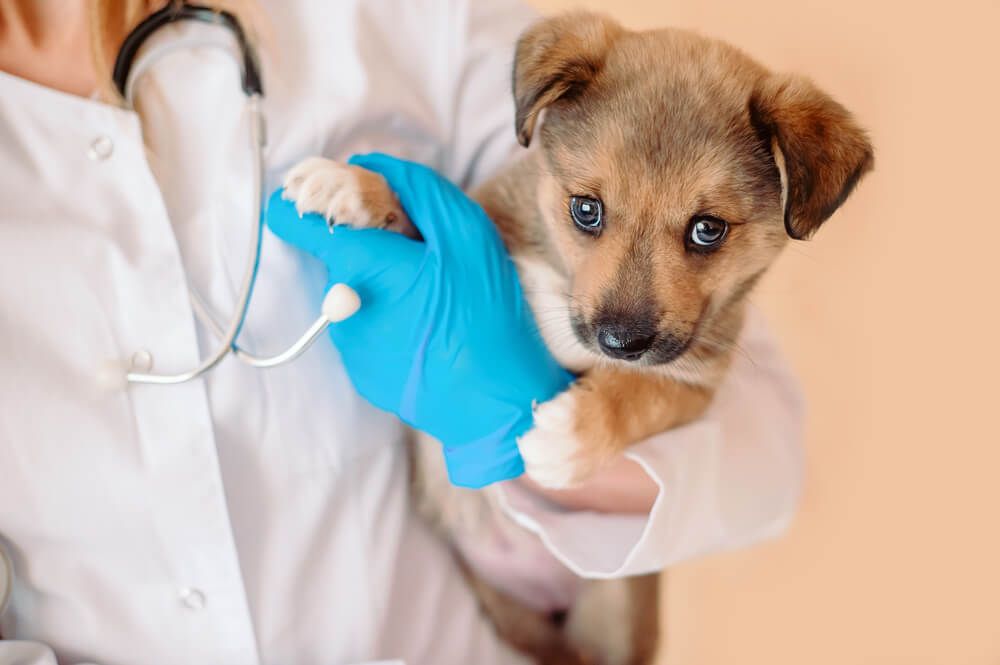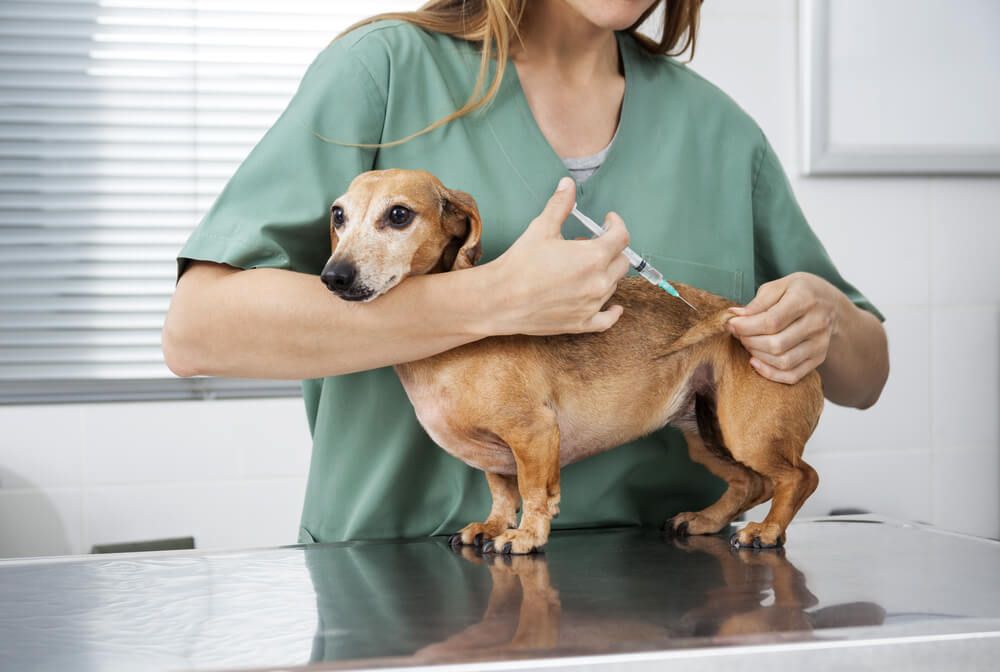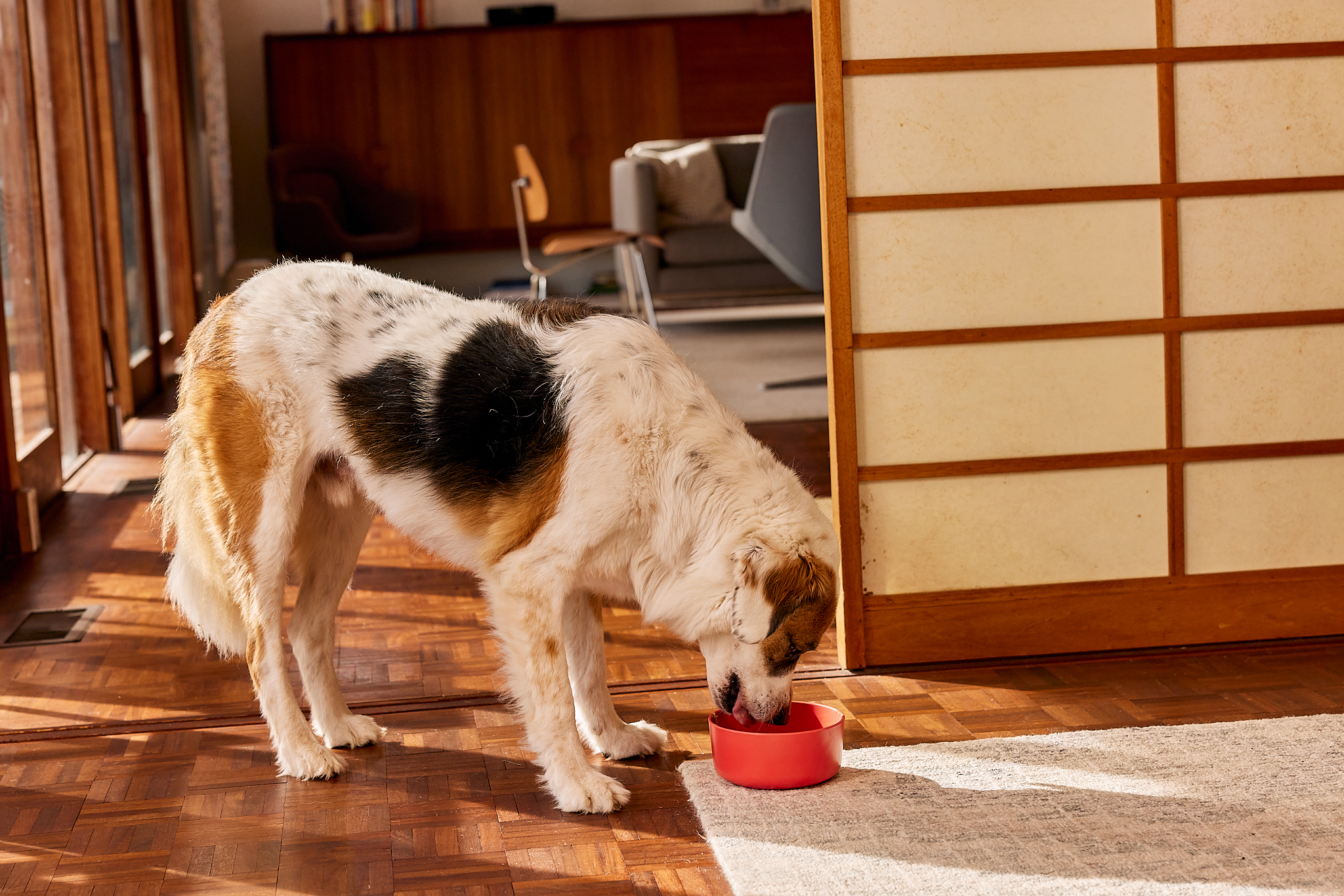Hey Ollie blog readers! We’re offering you an exclusive 60% OFF your starter box! Try now!
When you bring home a new puppy one of the first things you will want to do is take them to the vet. This is for a number of reasons. The first is to ensure they are healthy. If you bought the pup from a breeder a vet exam within 48-72 hours of getting your puppy might be required. Second, you want your puppy to get used to going to the vet and being handled. Having a dog who is afraid of the vet can present additional challenges that last a lifetime. Third, your puppy will need to get started with or continue their vaccinations. We learned all about puppy vaccination schedules so that you can be prepared and know what questions to ask your vet first.
Why do puppies need vaccines?
The American Veterinary Medical Association says dogs need vaccines because they provide immunity against one or several diseases that can lessen the severity or prevent certain diseases altogether.
Vaccines are designed to trigger protective immune responses and prepare the immune system to fight future infections from disease-causing agents (germs). They stimulate your dog’s immune system to produce antibodies that identify and destroy infections.

What shots do puppies need?
Rabies & DHPP
In the United States, all 50 states require a rabies vaccine. The other vaccine that is considered a “core” vaccine is the vaccine for Distemper, Hepatitis, Parainfluenza and Parvovirus (DHPP). You may just hear this one referred to as the distemper shot says Krista Davis a certified veterinary nurse and trainer with My Pet’s Teacher in Horsham, PA.
Bordetella
You will need to discuss your lifestyle with your vet to determine which other vaccines are appropriate. If you are planning to have your dog interact with lots of other dogs like at boarding facilities, doggy daycare, or a dog park you might be required by the facility to give your dog the bordetella vaccine. If you and your vet feel that your dog won’t socialize enough for this to be necessary, you may decide to skip it.
Leptospirosis
In some urban areas where rats are found, or if you live on a lot or wooded area, you may want to inquire about the leptospirosis vaccine. Leptospirosis is a bacterial infection that is spread through standing water and wildlife urine. It is also possible for humans to get this infection. It can be fatal or cause perminant damage to your dog’s liver or kidneys. There is a lot of misinformation about the risk of this vaccine so discuss with your vet to make sure you understand the benefits and any risk associated.
Lyme disease
If ticks are a concern, you may also want your best friend to get a Lyme disease vaccine. Even dogs who spend most of their time in the city can come in contact with ticks. Even if you opt out of this vaccine, be sure that you have discussed flea and tick prevention options with your vet. Your dog should be on some form of preventative protocol year round.
As a pet parent, you want to make sure you have all of the information you need to make the best decision about vaccines for your pup. Do your research and feel free to ask questions before your vet administers vaccines. Your vet should help you feel comfortable with your decision, not push vaccines on you.
Your vet’s priority is to present you with research-based studies and their own professional experiences to help you make the best choices for your pup. Outside of what is required by law, you as the pet parent have the final say!
When administering vaccines, some vets will have you spread them out if you are needing more than one or two. Your vet may recommend allowing 2-3 weeks between vaccines so as not to overload your pup’s sensitive system.
The recommended puppy vaccine schedule
Generally, your puppy should start getting vaccinated between 6 and 8 weeks old. Most puppies aren’t separated from their mother until the 8-week mark, so you want to make sure your puppy starts getting vaccines at the right time, or as soon as you bring them home. These first shots will continue every 2-3 weeks until 16 or 17 weeks of age.
Park City Veterinary Hospital in Fort Lauderdale, Florida recommends the following schedule to new pet parents:
|
Age of Puppy |
Recommended Vaccine(s) |
|
7-9 weeks |
Distemper, Hepatitis, Parainfluenza and Parvovirus (DHPP), Bordetella (Oral) |
|
10-12 weeks |
DHPP, Leptospirosis |
|
13-15 weeks |
DHPP, Leptospirosis, Bivalent Canine Influenza, Lyme Disease |
|
16-17 weeks |
DHPP, Bivalent Canine Influenza, Lyme Disease, Rabies |
*Lyme disease vaccines are given depending on the lifestyle of the dog
How much are vaccines for puppies?
The cost of your puppy’s vaccinations can vary greatly due to a number of different factors. The first is whether they are performed during a vet exam or just by a tech. As long as your puppy has seen the doctor, some veterinary practices will allow you to make a tech appointment where you will just go in for a quick vaccine with the tech. The tech fee is usually only $15-20 whereas a full exam with the doctor can run $50 -$100 plus the cost of the vaccines themselves. Many SPCA’s or animal shelters have low-cost veterinary clinics attached to them. These clinics offer services, including vaccines at a reduced price generally around $20 – $30 depending on your income level or where the clinic is located. After the initial round of shots, you want to chat with your vet or clinic about a booster shot schedule. Some shots, like the rabies vaccine, now only need to be administered every 3 years. Understanding the booster shot schedule will help you better plan and budget.
When can I take my puppy in public?
Until your puppy has had all of their vaccines, they are at risk for contracting diseases and illnesses that can be harmful or even fatal. They can also spread diseases to other pets in your home as well as to your and the other human members of the family. This is why it is important to keep your dog away from other pups and animals outside of your immediate family until they are fully vaccinated.
That means no boarding, kennels, or trips to the dog park either! This presents a unique challenge in that during this stage of your puppy’s development it is important for them to be socialized. The safest way to do this is through a program like a puppy kindergarten. In these classes, your puppy will only be exposed to other puppies on the same vaccination schedule as they are – reducing the risk of sharing illnesses but allowing your puppy to learn important social skills.
The Ollie blog is devoted to helping pet parents lead healthier lives with their pups. If you want to learn more about our fresh, human-grade food, check out MyOllie.com.
Tagged As:

The nutrition your dog needs,
the food they want.

Enjoying our articles? Subscribe our Newsletters and get new articles directly to your inbox
You might also like
3 July 2025
5 MINS READ
How Fresh Food Can Help Your Dog Have Perfect Poops
As a pup parent, you’re likely very familiar with your dog’s bathroom habits. While it may not be the most glamorous part of taking care of your pup, a dog’s stool can be one of the most dir…
by Ollie Pets
4 June 2025
5 MINS READ
How Can Fresh Dog Food Help with Weight Management?
Maintaining a healthy weight is one of the most important aspects of your dog’s overall health and longevity. Being overweight or underweight can result in health complications and conditions that…
23 May 2025
5 MINS READ
Why Fresh Dog Food Makes Happier, Healthier Dogs That Live Longer
Every pup parent wants their dog to live a long, happy life, and the path to a healthier, happier dog starts with what’s in their bowl. Recent research and expert insights reveal that fresh dog …
by Ollie Pets







